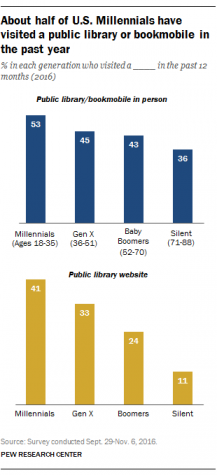Not the Time to Turn the Page
In order for libraries to stay relevant and not become obsolete, they need to make adaptations to keep with current times.
PHOTO | DGT Portraits, Pexels
Libraries, once revered and essential institutions, are struggling to adapt with an increasingly digital age.
Endless shelves of books. A quiet, calm and peaceful nature. Libraries have long served as a treasure for those who love to get away and get lost in the pages of a book. But in modern society, libraries tend to have a new definition. Study centers for college students cramming the night before an exam. Just as many computers and technology resources as there are books. In order for libraries to not become obsolete, they must be tailored to fit the needs of the modern generations, and adapt to future advancements. In a time of an abundance of information and technology, in reality libraries are needed more than ever.
While libraries may not have the exact same appeal or purpose they did a decade ago, they’re still functioning in modern society, just in different ways. Books are expensive, and libraries provide free alternatives. Internet access is something that a percentage of our population does not have at home. 53% of millennials in the United States say they visit a library at least once a year, according to a Pew Research study. It is significant that millennials in our nation use the library more than any other generation because this is the generation with college students, those just entering the workforce, and ultimately the defining generation of our country in current society.

Many might argue that libraries are just no longer “with the times.” This may be true in some cases, but there’s room and ability for change. In a world that is shifting towards technology and digitalization of more aspects in our life than imaginable, libraries just need to make adaptations in order to be more accessible, user-friendly and provide current library users’ needs. But this shouldn’t be surprising or a huge shock – this goes for any institution similar to a library. As the trends of our society change, specific aspects of our world need to adapt.While the modern role of libraries may be complex in some ways, they are necessary. Design thinking is essential for making libraries more accessible and able to be utilized in the manner modern society needs.
If anything, they need to be more relational than our typical definition of “functional.” The most important factor is that libraries meet the needs of the people they serve: those needing study spaces, access to technology, etc. Sure, this may mean that now there may be more rows of computers and cubicles for study spaces than there are rows of books. But redefining what we use libraries for is not a bad thing. Even if we lose some of the historical traditions of libraries, modern usage allows for the creation of new pathways and ideas. They can become more accessible, serve more people and be a space of communication. If libraries continue to make these changes and conform to the trends of modern society, then becoming obsolete should not be a problem.



